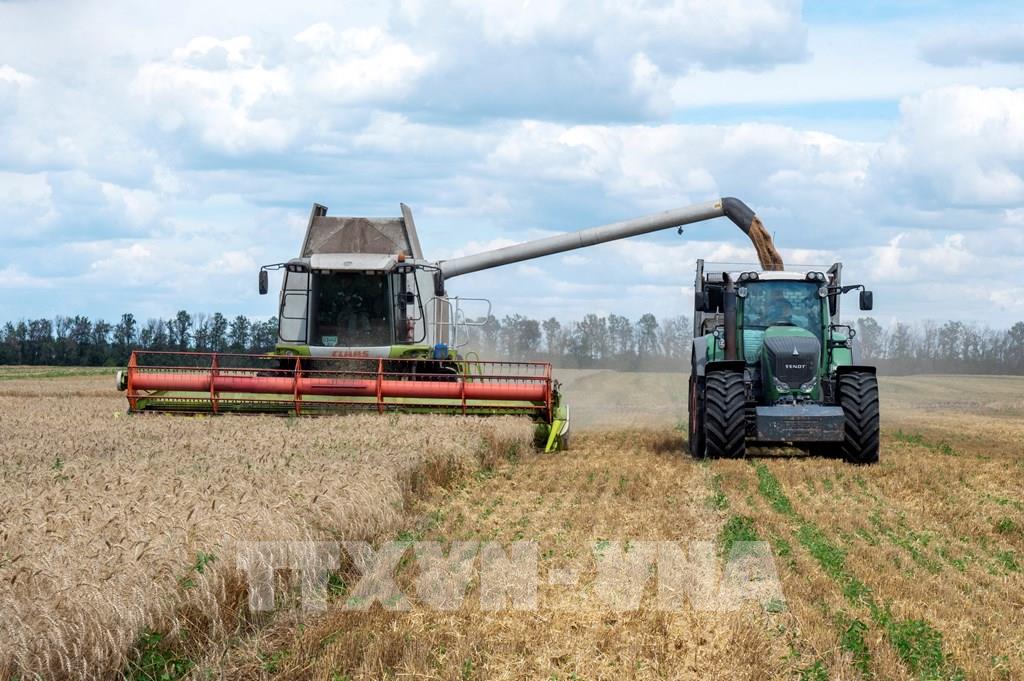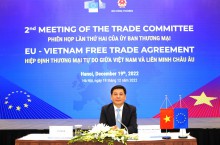The News
WTO members consider how to revamp stuck ag talks post-MC12
After proving unable to agree to a post-12th ministerial conference work program for the agriculture negotiations, a number of World Trade Organization members are arguing that now is the time to shake up the talks and try to evaluate key issues from a “big picture” perspective.
After proving unable to agree to a post-12th ministerial conference work program for the agriculture negotiations, a number of World Trade Organization members are arguing that now is the time to shake up the talks and try to evaluate key issues from a “big picture” perspective.
During agriculture negotiation meetings this week, many members – including the U.S., the European Union and the Cairns Group, which represents a collection of agriculture-exporting members – argued that the talks have been stuck for years and a new approach is needed if negotiators hope to move forward, and if they are to address challenges like climate change and food insecurity, according to a Geneva-based trade official familiar with the discussions.

That stance was echoed by the chair of the negotiations, Costa Rican Ambassador Gloria Abraham Peralta, who advocated for new strategies and rethinking approaches to issues and noted that in her time as chair the status quo of members’ positions has remained largely unchanged despite numerous meetings, submissions and consultations.
Abraham is leaving Geneva and her post as the ambassador from Costa Rica. The new chair will be appointed in the coming months.
Many WTO members during the meeting expressed disappointment that ministers during MC12 could not agree to the agriculture work program, the official said. Several members said it showed how much a new approach for the talks is needed.
The outgoing chair – as well as the U.S., Australia and Japan – supported Director-General Ngozi Okonjo-Iweala's suggestion of a retreat in September to allow for “fresh look, a rethink,” in a more “relaxed” environment, as she said earlier this month.
The Cairns Group proposed that the negotiations should no longer be conducted in “silos” and that members should identify common concerns across issues. This could be informed by bringing in experts from other organizations, the group added, according to the official.
The idea of looking at the “big picture” and re-examining the negotiations’ objectives was also supported by the U.S., the EU and Japan, the official said. They also advocated for taking into account in this rethink issues like climate change, sustainable development, COVID-19 and food security.
The U.S. argued that the agriculture talks have “faltered” for years, according to the official. It echoed the call for an approach that included issues like climate change and food security, but also called for any new negotiating approach to be pragmatic. The U.S. further urged members to show restraint in putting forward proposals without clear negotiating objectives and to avoid repeating longstanding positions, the official said.
Another group of members – India, Egypt, the African Group and others – argued for the negotiators to put food security at the “heart” of the talks, according to the official. They recommended more policy space to tackle food security challenges, arguing in particular for a permanent solution to public stockholding.
Others, however, maintained that public stockholding is only part of the solution and the approach to food security must be balanced, according to the official.
No next meeting of the agriculture negotiations is yet scheduled; the WTO operates with a very light schedule in August. The September retreat, if confirmed, is likely to be the next gathering related to the agriculture negotiations.
Hannah Monicken (hmonicken@iwpnews.com)



